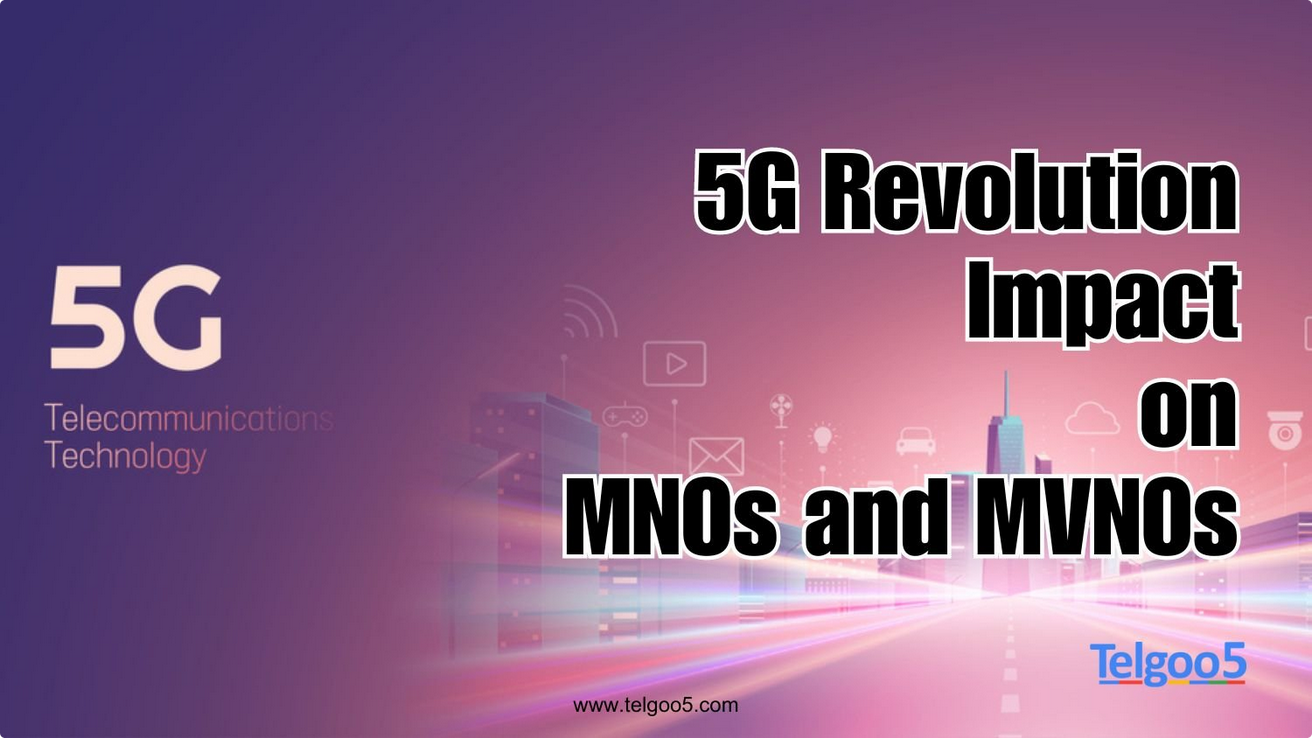
5G Revolution Impact on MNOs and MVNOs
With the advent of 5G technology, the telecommunications industry is undergoing a major transformation. The fifth generation of wireless technology promises to bring faster speeds, lower latency, and greater capacity, enabling new applications and experiences that were previously impossible. In this blog post, we will explore the impact of the 5G revolution on mobile network operators (MNOs) and mobile virtual network operators (MVNOs).
What is 5G?
5G is the fifth generation of wireless technology, which promises to deliver faster speeds, lower latency, and greater capacity than previous generations. 5G networks use a combination of new radio technologies, spectrum bands, and network architectures to provide these benefits. 5G networks are designed to support a massive number of devices, from smartphones and tablets to Internet of Things (IoT) devices and autonomous vehicles.
Impact on MNOs
MNOs are the traditional providers of mobile services, owning and operating their own networks. The introduction of 5G technology presents both opportunities and challenges for MNOs.
Opportunities:
1. New Revenue Streams
5G technology opens up new revenue streams for MNOs, including opportunities to provide connectivity for IoT devices, smart homes, and autonomous vehicles. These new services will require MNOs to build out new network infrastructure, but they also represent significant revenue potential.
2. Improved Customer Experience
5G technology promises to deliver faster speeds, lower latency, and greater capacity, which will improve the customer experience for MNOs’ existing services. For example, 5G will enable faster downloads and smoother video streaming, which will be attractive to customers.
3. Competitive Advantage
MNOs that are early adopters of 5G technology will have a competitive advantage over their peers. They will be able to offer new services and experiences that their competitors cannot, which will help to attract and retain customers.
Challenges:
1. Network Infrastructure Costs
The rollout of 5G networks will require significant investment in network infrastructure, including new radio equipment and fiber optic cables. MNOs will need to invest heavily in their networks to take advantage of 5G technology.
2. Spectrum Availability
5G networks require access to a large amount of spectrum, and spectrum availability varies by region. MNOs will need to work with governments and regulators to ensure that they have access to the spectrum they need to build out their networks.
3. Security Concerns
With the increased number of connected devices, 5G networks present new security risks for MNOs. They will need to invest in new security measures to protect their networks and their customers’ data.
Impact on MVNOs
MVNOs are mobile service providers that do not own their own networks, but instead rely on MNOs to provide network access. The introduction of 5G technology presents both opportunities and challenges for MVNOs.
Opportunities:
1. New Service Offerings
5G technology opens up new service offerings for MVNOs, including IoT connectivity and smart home services. MVNOs can partner with MNOs to offer these services, without having to invest in their own network infrastructure.
2. Improved Customer Experience
As MNOs roll out 5G networks, MVNOs will be able to offer their customers faster speeds and better connectivity. This will improve the customer experience and make MVNOs more competitive.
3. Lower Network Costs
MVNOs can benefit from the investment that MNOs are making in their 5G networks. As MNOs build out their networks, MVNOs can take advantage of the new infrastructure without having to invest in their own network equipment.
Challenges:
1. Network Access
MVNOs rely on MNOs for network access, and the rollout of 5G networks may create disparities in network access between different MVNOs. MNOs may prioritize network access for their own customers, leaving MVNOs with slower or less reliable network access.
2. Pricing Pressures
As MNOs invest heavily in their 5G networks, they may increase prices for network access, which could put pressure on MVNOs. MVNOs will need to find ways to manage costs and maintain profitability, while still offering competitive pricing to their customers.
3. Security Concerns
As with MNOs, MVNOs will need to invest in new security measures to protect their networks and their customers’ data from new security risks associated with 5G technology.
Conclusion
In conclusion, the impact of the 5G revolution on MNOs and MVNOs is significant. While 5G technology presents new opportunities for revenue growth and improved customer experiences, it also presents challenges in terms of network infrastructure costs, security concerns, and pricing pressures. MNOs that can invest in 5G technology early will have a competitive advantage over their peers, while MVNOs will need to find ways to manage costs and maintain profitability. As the telecommunications industry continues to evolve, both MNOs and MVNOs will need to adapt to the new landscape presented by 5G technology in order to remain competitive and meet the evolving needs of their customers.
Contact us today to get a consultation!
Send us a message to get answers to any of your questions & we'll get back to you within 24-48 hours or as soon as possible.
